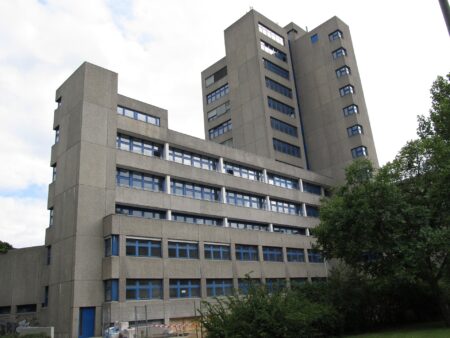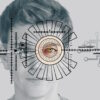Jülich, 11 January 2007 – This year's internationally prestigious Japan Prize has been awarded to Prof. Peter Grünberg from Research Centre Jülich. He will share the prize money of roughly ¤ 350,000 in the category „Innovative Devices Inspired by Basic Research“ with Prof. Albert Fert from the Université Paris-Sud. The prize will be presented in April by the Emperor of Japan, Akihito. The two solid-state physicists will be honoured for their work on giant magnetoresistance. The discovery of this effect led in the nineties to a breakthrough in gigabyte hard drives.
Peter Grünberg was already awarded the Future Prize of the German Federal President in 1998. In 2006 he was honoured with the prize for European Inventor of the Year by the European Commission, and in 2007 he received the Stern-Gerlach Medal of the German Physics Society. Grünberg's work laid the foundations for the field of spintronics, which exploits the quantum mechanical spin of electrons for micro- and nanoelectronics.
In their citation the jury emphasized that the basic research by Grünberg and Fert had meant „a major contribution to the advancement of information technology“. The Science and Technology Foundation of Japan, which awards the prize annually in two categories, said that the „their achievements are of inestimable importance and richly deserve their place in the annals of scientific discovery“. The prize will be presented to the researchers on 19 April by the Emperor of Japan, Akihito.
Grünberg's giant magnetoresistance (GMR) effect is now found in more than 90 per cent of hard drives produced today. The GMR effect enables data to be read out very precisely. These data are stored tightly packed in small areas of different magnetization. A sensor that makes use of the GMR effect registers these tiny differences as a large measurable change and is therefore able to function in a highly sensitive manner.
This fact was recognized very rapidly by industry. The first GMR read head for computer hard drives came onto the market in 1997. Exploitation of the GMR effect has led to eight-figure earnings for Research Centre Jülich. The GMR effect has long been integrated around the world into improved read heads for hard drives, videotapes and in MP3 players.
More information
Pictures and background information on Peter Grünberg and the GMR effect can be found at http://www.fz-juelich.de/gruenberg.
You will find information on the Japan Prize at:
http://www.japanprize.jp/prize/prize_e1.htm
http://www.japanprize.jp/press/e_top.htm
Press contact:
Kosta Schinarakis, Science Journalist, Corporate Communications, Research Centre Jülich, Germany
Tel. 0049 2461 61-4771, fax 0049 2461 61-4666, E-mail: k.schinarakis@fz-juelich.de
About Research Centre Jülich
With a staff of roughly 4300, Research Centre Jülich is the largest multidisciplinary research establishment in Europe. Its topics reflect the grand challenges facing society today: preserving human health, handling information, protecting the environment, and supplying energy. Activities are concerned with both long-term, theory-oriented and cross-disciplinary contributions to science and technology as well as specific technological applications for industry. It is characteristic of Jülich that its researchers exploit two central key competencies: physics and scientific computing using supercomputers.
Weitere Informationen: http://www.fz-juelich.de/gruenberghttp://www.japanprize.jp/prize/prize_e1.htmhttp://www.japanprize.jp/press/e_top.htm





